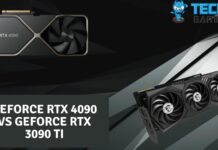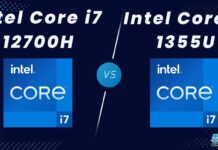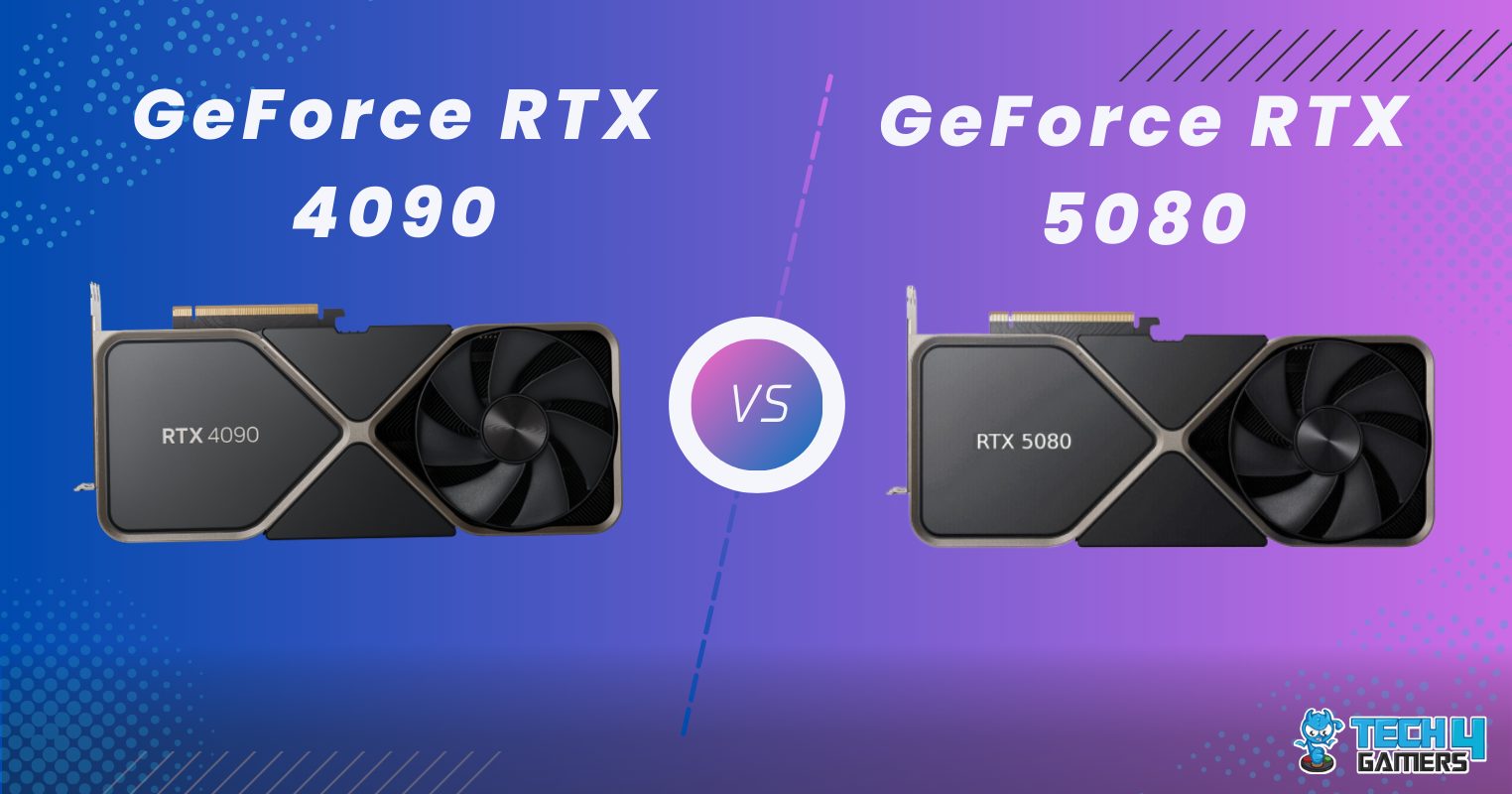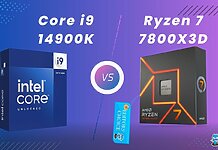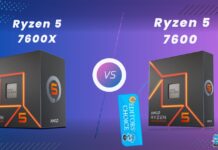With Intel’s modern naming scheme, you’d be hard-pressed to tell the difference between two processors in their mobile lineup. For example, this comparison is focused on the Core i7 1360P vs Core i7 13700H, both allegedly high-end processors from Intel for laptops, though with a few major differences. This comparison will highlight the differences between the 1360P and the 13700H to help you make your next purchasing decision.
Key Takeaways
- In our benchmark tests, the 13700H was about 17% faster than the 1360P in terms of overall performance.
- The 1360P consumed about 43% lower power than the 13700H on average.
- The 1360P is meant for high-performance ultrabooks, whereas the 13700H is meant for top-of-the-line gaming and professional laptops.
Core i7 1360P Vs Core i7 13700H
Comparison Table
| Model | Intel Core i7-1360P | Intel Core i7-13700H |
| Architecture | Intel Raptor Lake-P | Intel Raptor Lake-H |
| Clock Speeds | 1600 – 5000MHz | 1800 – 5000MHz |
| L2 Cache | 10MB | 11.5MB |
| L3 Cache | 18MB | 24MB |
| Cores | 4 Performance 8 Efficiency |
6 Performance 8 Efficiency |
| Threads | 16 | 20 |
| Technology | 10nm | 10 nm |
| TDP | 28W | 45W |
| max. Temp. | 100 °C | 100 °C |
| iGPU | Intel Iris Xe Graphics G7 96EUs | Intel Iris Xe Graphics G7 96EUs |
| Price | ~$480 | ~$502 |
Architectural Differences
- Core Count: Both the 1360P and the 13700H are based on Intel’s big.LITTLE hybrid core architecture that allows the use of both performant and efficiency cores in their CPUs.
The 1360P is weaker in its core count, having only 4 performance cores and 8 efficiency cores, whereas the 13700H is more powerful with 6 performance cores and 8 efficiency cores. This tallies up to 16 threads for the P series processor and 20 threads for the H series processor. - Clock Speeds: The clock speeds are slightly faster on the 13700H than the 1360P, ranging from 1800MHz at base to 5000MHz at boost, whereas the 1360P has 1600MHz at base and 5000MHz at boost.
- Processing Nodes: Both these processors operated on the slightly old 10nm processing nodes.
- TDP: The 1360P has a noticeably smaller TDP than the 13700H, making it more suitable for thin and light laptops, unlike the 13700H, which is suited for high-end gaming laptops. It has a TDP of 28 watts, compared to the 45 watts of the 13700H.
- L3 Cache: The L3 cache is also significantly lower on the 1360P than the 13700H. The 1360P has a cache of around 18MB, whereas the 13700H improves upon this with 24MB of cache.
Core i7 13700H Vs Core i7 1360P: Benchmarks
Now that we’ve clarified the hardware differences these processors possess, it is now time to see how they stack up to each other in benchmarks.
Note that the benchmarks we have presented here are a median of the performance of several laptops with these processors, and your performance could be lower or higher, depending on the exact spec of your mobile machine.
For this reason, we recommend you thoroughly research the exact laptop you want to buy after we’ve presented the better CPU for your workload.
CineBench R23
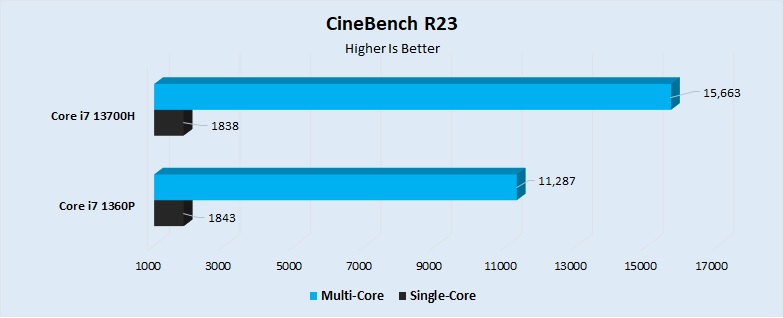
- Starting with one of the most representative benchmarks of real-world use, both these processors were stacked up against each other in CineBench R23. The i7 1360P had a performance of about 11287 points. On the other hand, the more cores on the 13700H showed their worth with a performance of 15663 points in the multi-core benchmark. This computes a 39% performance lead for the 13700H.
- Going on to single-core, the performance of both these processors was more or less the same. The 1360P scored 1843 points, whereas the 13700H scored slightly lower at 1838 points.
Geekbench 6
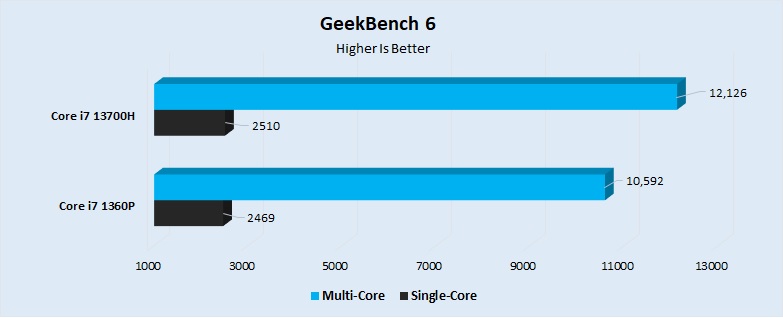
- Coming to another popular benchmark hailed as the be-all-and-end-all for many consumers, Geekbench 6 was next on the chopping block. The 1390P had a single-core performance of 2469 points, whereas the 13700H had a slightly higher performance of 2510 points, proving once again that the single-core performance of these processors is more or less the same.
- Coming to the multi-core performance, the 13700H came out ahead of the 1360P, though not with as wide a margin as seen previously. The 13700H scored 12126 points, about 14% higher than the 10592 of the 1360P.
7-Zip
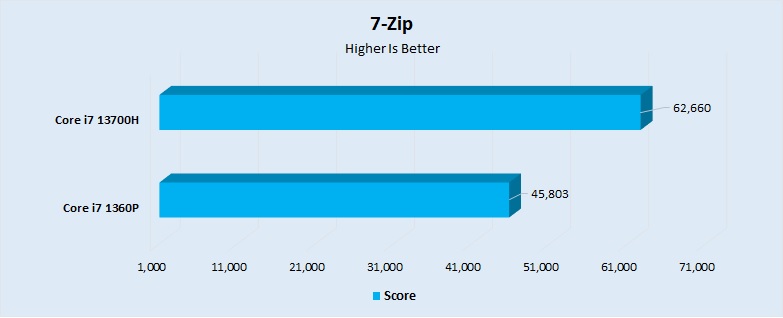
- In the 7-Zip decompression test, the 13700H came significantly ahead of the 1360P. The difference came out to about 37%.
- The 1360P had a performance of 45803 points, whereas the 13700H was much higher, with an output of about 62660 points.
Blender
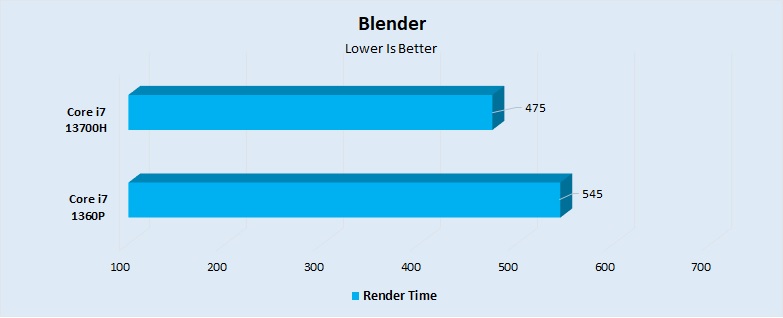
- In the Classroom benchmark of Blender, we saw that the exceptional multi-core performance of the 13700H does not always translate to better performance in the real world.
- The 1360P finished the benchmark in 545 seconds, whereas the 13700H finished the benchmark in about 475 seconds. The 13700H was only about 13% faster than the 1360P in this test.
HWBOT x265 v2.2
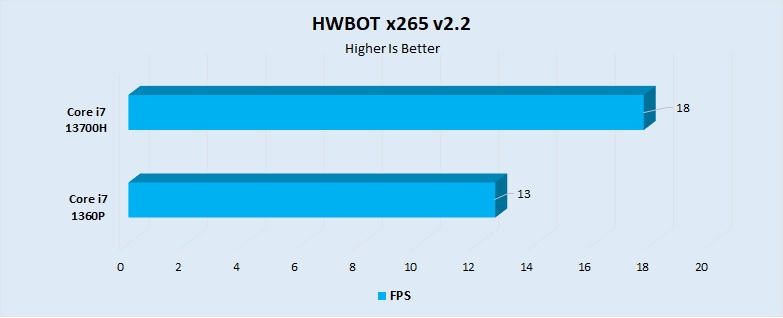
- This benchmark also proved the superiority of the 13700H in terms of raw performance, with the CPU performing about 40% better than the 1360P.
- The 13700H had a performance of 18 FPS, compared to 13 FPS on the 1360P.
3DMark 06
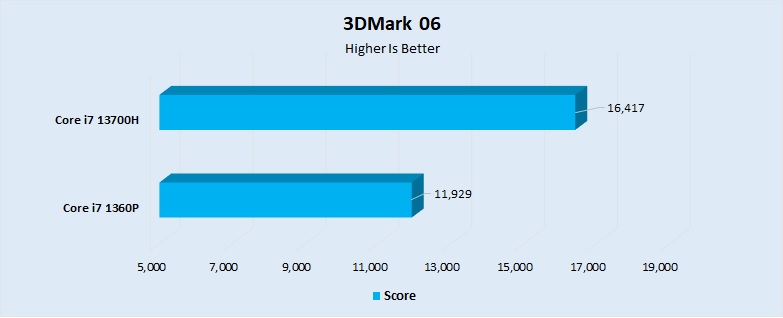
- In the popular physics rendering benchmark 3D mark, the i7 13700H returned to form with a sizeable lead over the 1360P, with a performance about 38% better than the 1360P.
- The 13700H had about 16417 points, whereas the 1360P scored a lower, yet still commendable, 11929 points,
Power Consumption
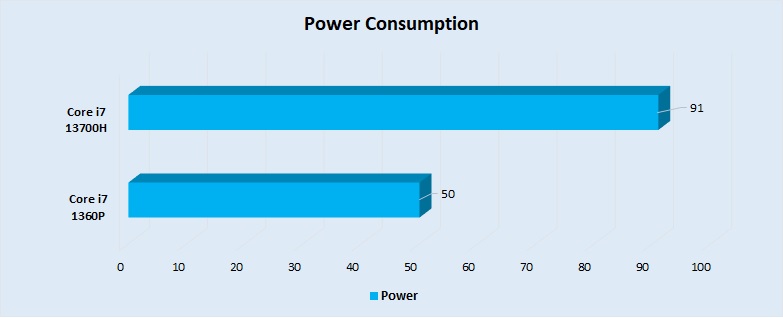
- Using Prime95, we saw that the 1360P has a medina power consumption of 50 watts, whereas the 13700H had a power consumption of about 91 watts.
- Note that these numbers represent an average of multiple laptops, and the 13700H can drain power much faster than the 1360P.
Read our guide on how to extend a laptop’s battery life if you want to get more life out of any laptop with either of these two processors.
Which One Should You Go For?
- The Core i7 13700H processor is designed for top-tier performance, while the Core i7 1360P is suitable for thin-and-light machines.
- The 13700H requires a robust laptop and complements powerful hardware, whereas the 1360P boasts excellent battery life and thermal performance with no compromise on overall performance.
- Those seeking a processor with a strong focus on power should opt for the 13700H, while individuals searching for a powerful processor in a thin, lightweight machine should go for the 1360P.
If you are concerned about the longevity of laptops with these processors, read our guide on how long laptops last.
Pros And Cons
| CPU | Pros | Cons |
|---|---|---|
| Core i7 13700H |
|
|
| Core i7 1360P |
|
|
Frequently Asked Questions
Intel recommends manufacturers a consumer price of $480 for the 1360P and $502 for the 13700H.
The 13700H is a great option if you want a laptop with a GPU for around $1500-$3500, whereas the 1360P is used in premium ultrabooks ranging from $1000-$3000
Modern Intel chips with efficiency cores perform similarly to a 6th-generation laptop’s cores.
Thank you! Please share your positive feedback. 🔋
How could we improve this post? Please Help us. 😔
[Comparisons Expert]
Shehryar Khan, a seasoned PC hardware expert, brings over three years of extensive experience and a deep passion for the world of technology. With a love for building PCs and a genuine enthusiasm for exploring the latest advancements in components, his expertise shines through his work and dedication towards this field. Currently, Shehryar is rocking a custom loop setup for his built.
Get In Touch: shehryar@tech4gamers.com


 Threads
Threads